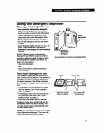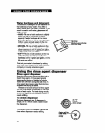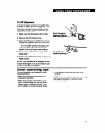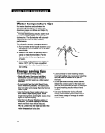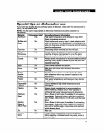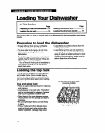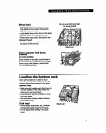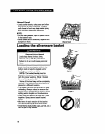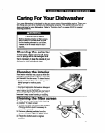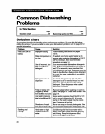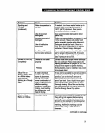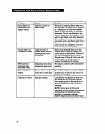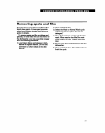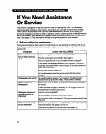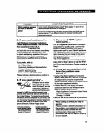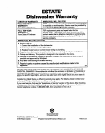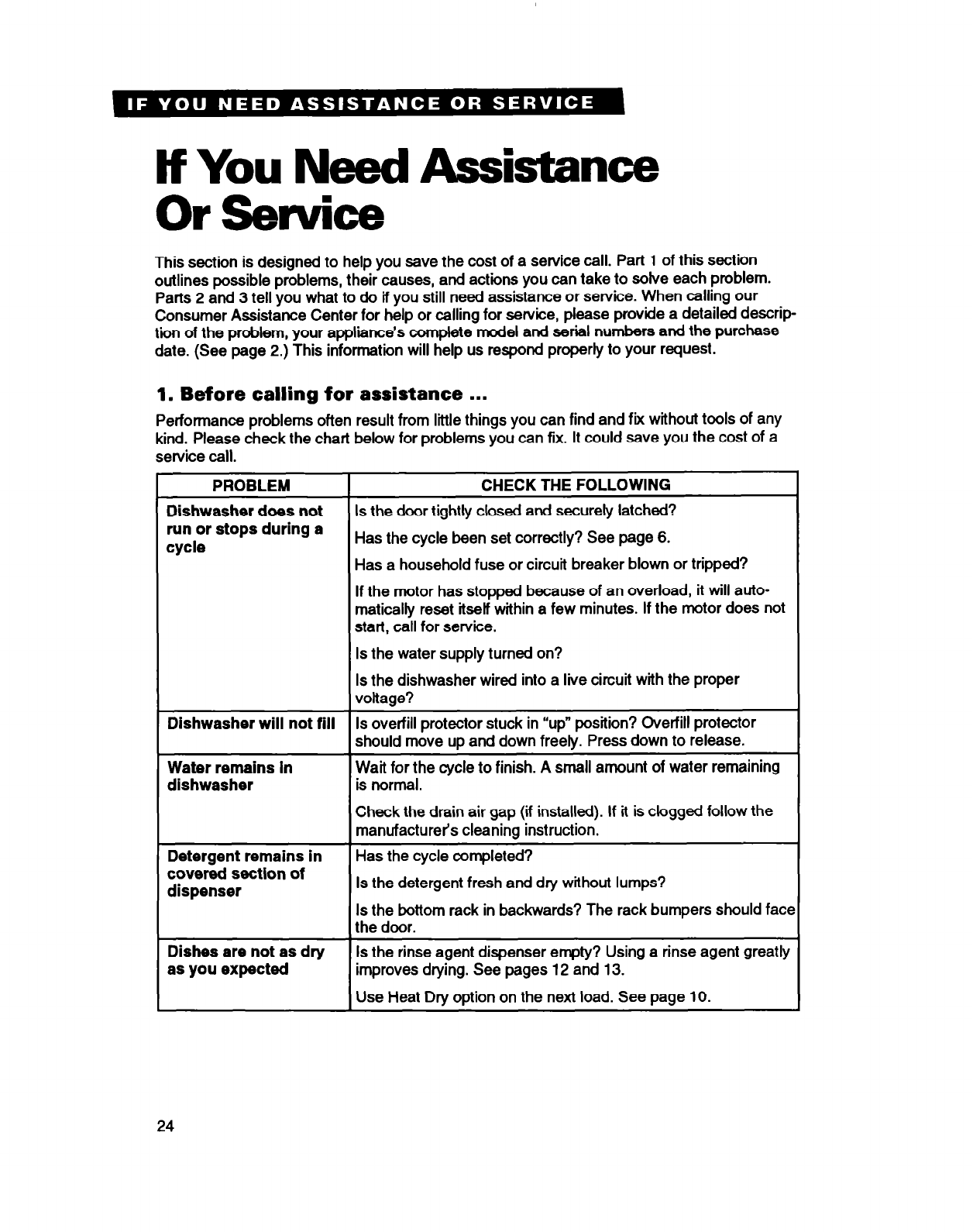
If You Need Assistance
Or Service
This section is designed to help you save the cost of a service call. Part 1 of this section
outlines possible problems, their causes, and actions you can take to solve each problem.
Parts 2 and 3 tell you what to do if you still need assistance or service. When calling our
Consumer Assistance Center for help or calling for service, please provide a detailed descrip-
tion of the problem, your appliance’s complete model
and
seriil numbers and the purchase
date. (See page 2.) This information will help us respond properly to your request.
1. Before calling for assistance . . .
Performance problems often result from little things you can find and fix without tools of any
kind. Please check the chart below for problems you can fix. It could save you the cost of a
service call.
PROBLEM
Dishwasher does not
run or stops during a
cycle
CHECK THE FOLLOWING
Is the door tightly closed and securely latched?
Has the cycle been set correctly? See page 6.
Has a household fuse or circuit breaker blown or tripped?
If the motor has stopped because of an overload, it will auto-
matically reset itself within a few minutes. If the motor does not
start, call for service.
Is the water supply turned on?
Is the dishwasher wired into a live circuit with the proper
voltage?
Dishwasher will not fill
Is overfill protector stuck in “up” position? Overfill protector
should move up and down freely. Press down to release.
Water remains In
Waft for the cycle to finish. A small amount of water remaining
dishwasher
is normal.
Check the drain air gap (ii installed). If it is clogged follow the
manufacturer’s cleaning instruction.
Detergent remains in
Has the cycle completed?
covered section of
dispenser
Is the detergent fresh and dry without lumps?
Is the bottom rack in backwards? The rack bumpers should face
the door.
Dishes
are not as dry
Is the rinse agent dispenser empty? Using a rinse agent greatly
as you expected
improves drying. See pages 12 and 13.
Use Heat Dry option on the next load. See page 10.
24



